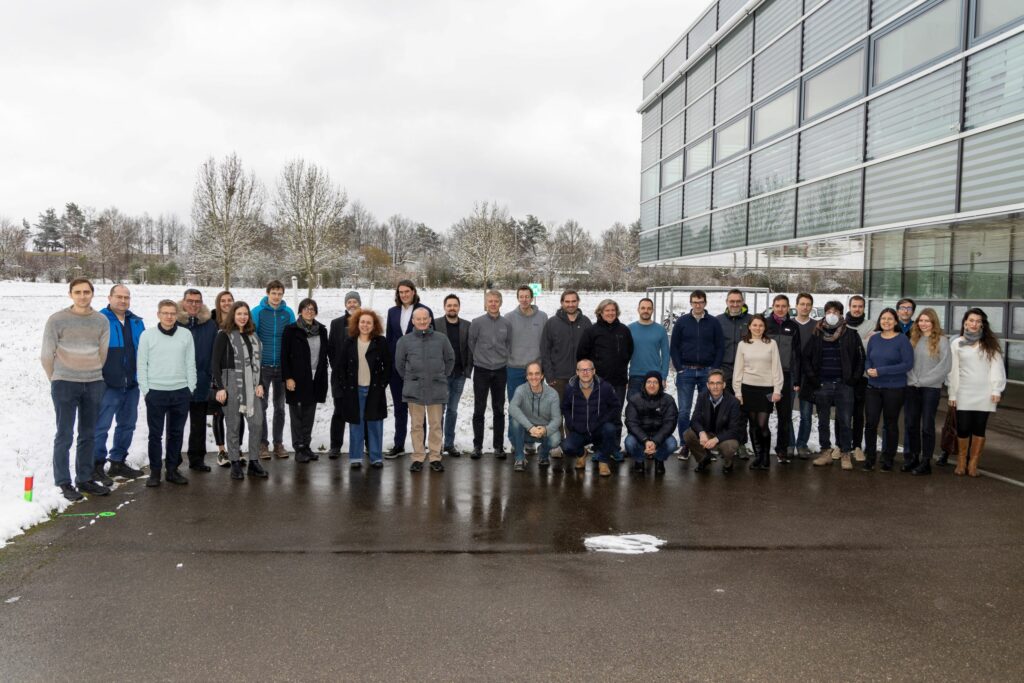EXCELLERAT begins its second funding phase
After a short break, EXCELLERAT P2 has begun in January 2023, along with nine other European Centres of Excellence that will develop and adapt HPC applications for the exascale and post-exascale era.
For the start of the second phase of the project, representatives from the 15 consortium partners – Spain, Germany, Italy, Sweden, Slovenia, and France – came together for a two-day kickoff workshop. The meeting took place on 18 and 19 January at the coordinating centre, the High-Performance Computing Center Stuttgart. Both days were dedicated to the exchange of views and ideas in order to strengthen the ongoing and future cooperation. Seven work packages were presented, their contents discussed and common goals agreed on. There was also room for personal exchange and getting to know each other, in particular the three new project partners, SiPEARL, University of Ljubljana, and Sapienza Università di Roma.

As the successor of the EXCELLERAT Centre of Excellence for Engineering Applications, EXCELLERAT P2 continues the fruitful partnership of Europe’s leading HPC centres, application specialists, and supporting partners who have worked with and offered their expertise and knowledge to engineering companies and researchers from across industry and academia for the past three decades. Application codes are the core of the EXCELLERAT P2 project, as they allow to achieve the cutting-edge results of engineering objectives. The seven chosen codes EXCELLERAT is focusing on in the second project phase are: CODA, AVBP, m-AIA, Alya, NEK5000, FLEW, OpenFOAM and Elmer. EXCELLERAT P2 will base its evolution and developments on six selected use cases and one additional application that require the full range of HPC usage profiles, from small scale capacity type applications, all the way to hero run type large scale applications. In detail, the use cases and further application addressed in this project phase are:
- External aircraft aerodynamics
- Hydrogen combustion for propulsion
- Mitigation of aeroacoustic noise
- Fully integrated aircraft simulations with emissions models
- High-fidelity simulations of rotating parts
- Active control for drag reduction of transonic airfoils
- Engineering design and digital twin of the first wall of a tokamak fusion reactor
EXCELLERAT P2 project will receive funding from the European High-Performance Computing Joint Undertaking (JU) under grant agreement No 101092621. The JU receives support from the European Union’s Horizon Europe research and innovation programme and Germany, Italy, Slovenia, Spain, Sweden and France.
Official announcement of the new CoEs by the EuroHPC Joint Undertaking

